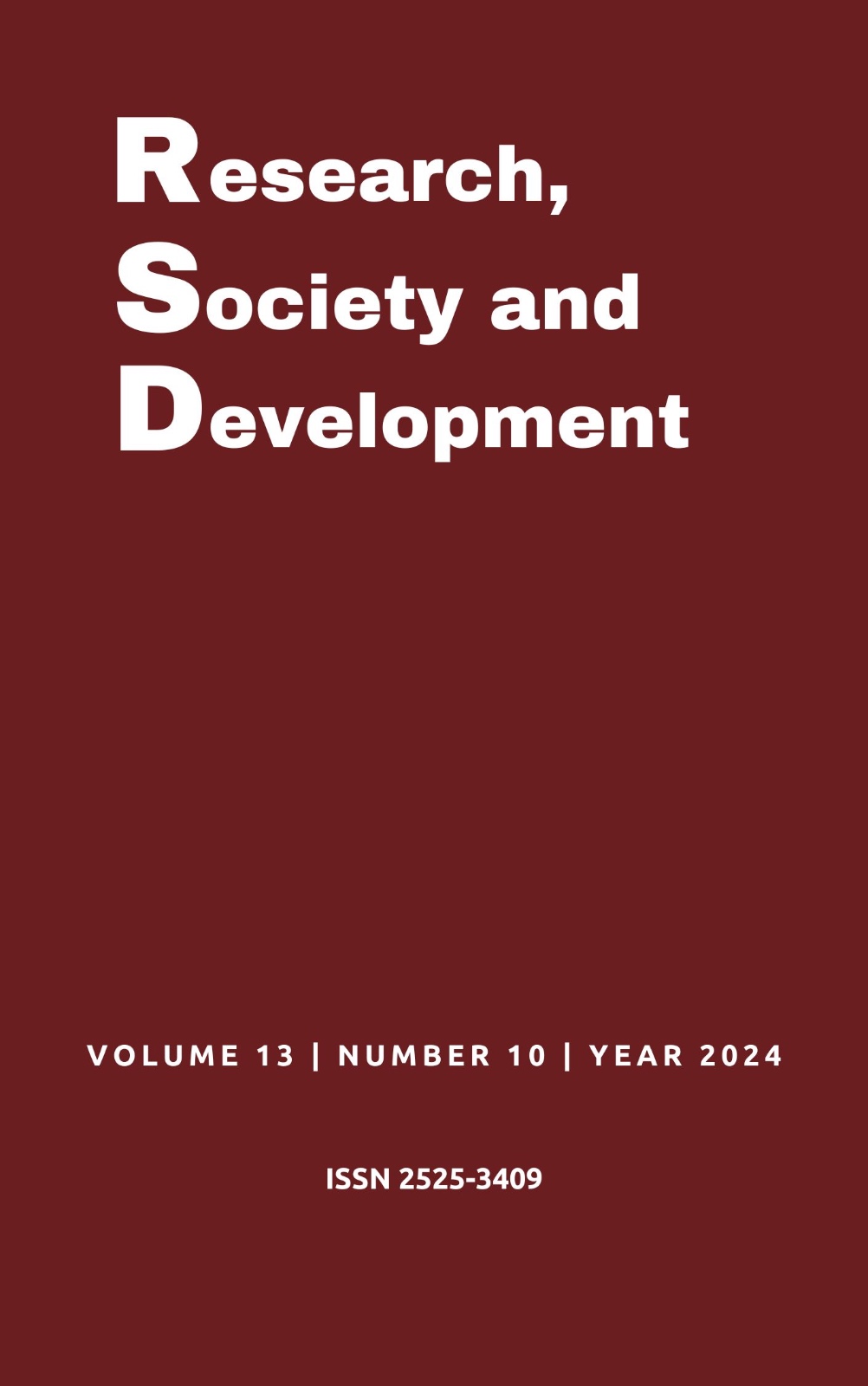Management of anxiety crisis in the emergency room: A literature review
DOI:
https://doi.org/10.33448/rsd-v13i10.47215Keywords:
Integrated management; Emergency room; Mental health.Abstract
Introduction: Anxiety attacks are a common condition that brings many patients to the emergency department. Objective: This article evaluates the effectiveness of standardized interventions in the management of these attacks, aiming to reduce length of stay, improve diagnostic accuracy, and increase patient satisfaction. It also examines the impact of multidisciplinary teams and emerging technologies on mental health in emergency departments. Methodology: This literature review analyzed recent studies on interventions in the emergency department, including pharmacological and nonpharmacological treatments. Results: The data show that the administration of benzodiazepines provides rapid relief of symptoms. Nonpharmacological interventions, such as breathing techniques and brief cognitive-behavioral therapy, have also demonstrated significant benefits. Discussion: The use of benzodiazepines should be monitored due to the risk of dependence. Nonpharmacological interventions are a safe alternative, especially when combined with psychological support. Conclusion: The management of anxiety attacks in the emergency department requires an integrated approach that combines pharmacological and nonpharmacological interventions. Adherence to evidence-based guidelines and ongoing education of providers are crucial to improving patient outcomes. Additional research is needed to develop new intervention strategies and ensure the best possible care.
References
American Psychiatric Association. (2013). Diagnostic and statistical manual of mental disorders (5th ed.).
Baldwin, D. S., et al. (2014). Benzodiazepines: risks and benefits. British Journal of Psychiatry, 205(3), 211-212. https://doi.org/10.1192/bjp.bp.113.137580
Cavalcante, L. T. C. & Oliveira, A. A. S. (2020). Métodos de revisão bibliográfica nos estudos científicos. Psicologia: Teoria e Prática, 26(1), 82-100. https://doi.org/10.5752/P.1678-9563.2020v26n1p82-100.
Corrigan, P. W., et al. (2014). The impact of mental illness stigma on seeking and participating in mental health care. Psychological Science in the Public Interest, 15(2), 37-70. https://doi.org/10.1177/1529100614531398
Coutinho, A. et al. (2023). O papel das equipes multidisciplinares no atendimento de saúde mental em emergências. Arquivos de Saúde Mental, 29(3), 213-220. https://doi.org/10.1590/2316-9192-2023-1953
Craske, M. G., et al. (2017). Anxiety disorders. Nature Reviews Disease Primers, 3, 17024. https://doi.org/10.1038/nrdp.2017.24
Hofmann, S. G., et al. (2012). The efficacy of cognitive behavioral therapy: A review of meta-analyses. Cognitive Therapy and Research, 36(5), 427-440. https://doi.org/10.1007/s10608-012-9476-1
Hoge, C. W., et al. (2014). Mental health problems, use of mental health services, and attrition from military service after returning from deployment to Iraq or Afghanistan. JAMA, 295(9), 1023-1032. https://doi.org/10.1001/jama.295.9.1023
Kroenke, K., et al. (2007). Anxiety disorders in primary care: prevalence, impairment, comorbidity, and detection. Annals of Internal Medicine, 146(5), 317-325. https://doi.org/10.7326/0003-4819-146-5-200703060-00008
Lader, M. (2011). Benzodiazepines revisited—will we ever learn? Addiction, 106(12), 2086-2109. https://doi.org/10.1111/j.1360-0443.2011.03571.x
Nash, M., et al. (2012). The role of mental health professionals in the emergency department. Journal of Emergency Nursing, 38(6), 539-543. https://doi.org/10.1016/j.jen.2011.09.007
Pereira, A. S. et al. (2018). Metodologia da pesquisa científica. [free e-book]. Santa Maria/RS. Ed. UAB/NTE/UFSM.
Rother, E. T. (2007). Revisão sistemática x revisão narrativa. Acta Paulista de Enfermagem, 20(2), 150-156. https://doi.org/10.1590/S0103-21002007000200001.
Spitzer, R. L., et al. (2006). A brief measure for assessing generalized anxiety disorder: the GAD-7. Archives of Internal Medicine, 166(10), 1092-1097. https://doi.org/10.1001/archinte.166.10.1092
Sawchuk, T. et al. (2023). Eficácia das intervenções farmacológicas e não farmacológicas no manejo de crises de ansiedade. Jornal Brasileiro de Psiquiatria, 45(2), 125-134. https://doi.org/10.1590/1516-4446-2023-2825
Downloads
Published
How to Cite
Issue
Section
License
Copyright (c) 2024 Hyággo Phernanddo Nolêto Arruda; Lucas Arruda Lino; Luis Miguel Carvalho Mendes; Pablo Diego Duarte Dovera; Andersanny Moura Bernardes; Gilmar José Torres; Carla Cristina Zanchin Couto ; Maria Eduarda Amorim Yamanoi de Carvalho ; Yasmin Louise Ribeiro Neves

This work is licensed under a Creative Commons Attribution 4.0 International License.
Authors who publish with this journal agree to the following terms:
1) Authors retain copyright and grant the journal right of first publication with the work simultaneously licensed under a Creative Commons Attribution License that allows others to share the work with an acknowledgement of the work's authorship and initial publication in this journal.
2) Authors are able to enter into separate, additional contractual arrangements for the non-exclusive distribution of the journal's published version of the work (e.g., post it to an institutional repository or publish it in a book), with an acknowledgement of its initial publication in this journal.
3) Authors are permitted and encouraged to post their work online (e.g., in institutional repositories or on their website) prior to and during the submission process, as it can lead to productive exchanges, as well as earlier and greater citation of published work.

